Africa
A major news source on the continent year in and out are elections – especially the presidential polls. 2017 was no different with as many as six elections taking place.
With the exception of the Liberian situation which awaits a run-off, the the five others have been concluded and winners sworn in. It turned out to be a good year for incumbents as they managed to renew their mandates – in the case of Rwanda and Kenya.
Over in Angola, the presidency got a new face as long-serving Eduardo dos Santos finally resigned his post but the ruling MPLA won the polls with ex-Defense minister Joao Lourenco taking over the reigns from dos Santos. In Somaliland too, the ruling party’s candidate came tops.
The only direct presidential loss was in Somalia where Hassan Sheikh Mohamud lost to incumbent Mohamed Abdullahi Mohamed Farmaajo. As part of our review of the year 2017, we look at each election assessing the circumstances before, during and after the process.
MPs vote in an airport to give Somalia a ‘cheese’ president
A vote meant to have taken place in 2016 was postponed several months. Eventually, authorities settled on February 2017 for polls to elect a president for war ravaged Somalia. Some 275 Somali MPs and 54 senators met to pick a president in a hangar at the main airport in Mogadishu.
They were tasked with retaining the then president Hassan Sheikh Mohamud, who was running for a second term or replace him with 21 other aspirants. In the end, the electors opted for a replacement.
After three rounds of voting, the incumbent at the time conceded to a former Prime Minister, Mohamed Abdullahi Mohamed Farmaajo. His last name ‘Farmaajo’ being an alias referring to cheese, which he is said to love.
Profile: Somalia’s ‘cheese’ President, Mohammed Abdullahi Mohammed ‘Farmajo’
Insecurity due to increasing attacks by insurgent group Al-Shabaab makes it impossible for universal suffrage, hence the need for MPs to elect the leader on behalf of the people.
The swearing in ceremony later that month took place at the same venue in the presence of a number of regional leaders. Kenya’s Uhuru Kenyatta, Ethiopia’s Hailemariam Desalegn and Djibouti’s Omar Guelleh were all present.
Somali MPs elect former PM as new president
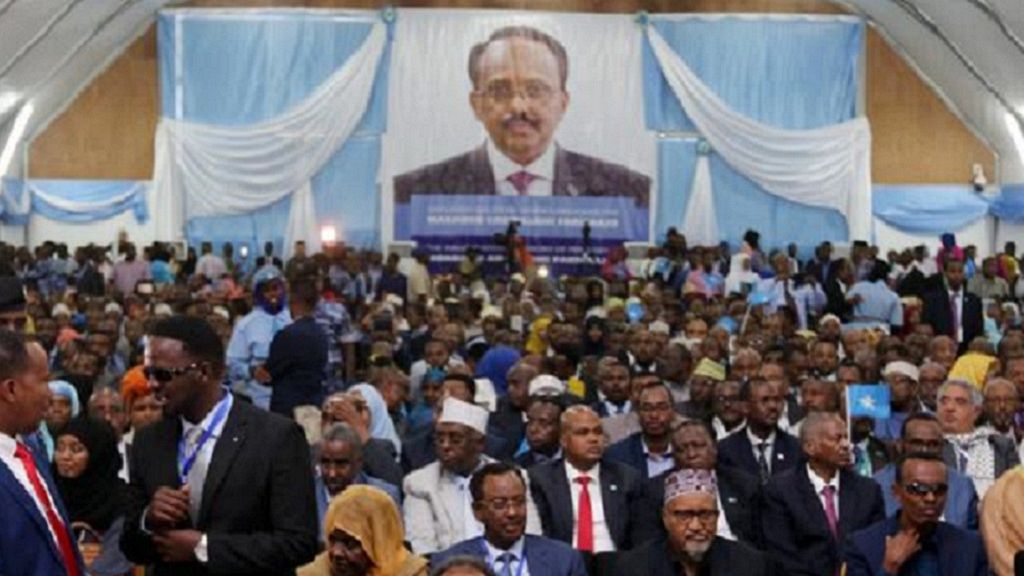
Rwanda votes as Kagame extends mandate
Following a 2015 referendum that scrapped presidential term limits, Paul Kagame was eligible to extend his mandate having ruled for the last seventeen years. He took his first presidential in April 2000.
He has since won the last two multi-party elections held in the country. First in 2003 and a renewal in 2010. Kagame was to face two other challengers but political watchers projected a landslide win for him.
The two challengers were: Frank Habineza – Founder and leader of Rwanda’s only opposition party, the Democratic Green Party (DGP) and Philippe Mpayimana, an independent candidate. The August 4 polls were conducted at home and in the diaspora and were largely okayed as free and fair.
In the end, the elections body declared Kagame winner with over 98% of the votes cast. He was sworn in on August 18 for a seven-year term. The ceremony was attended by a wide range of African leaders at a ceremony in the capital, Kigali.
Paul Kagame: Rwanda’s tough talking president
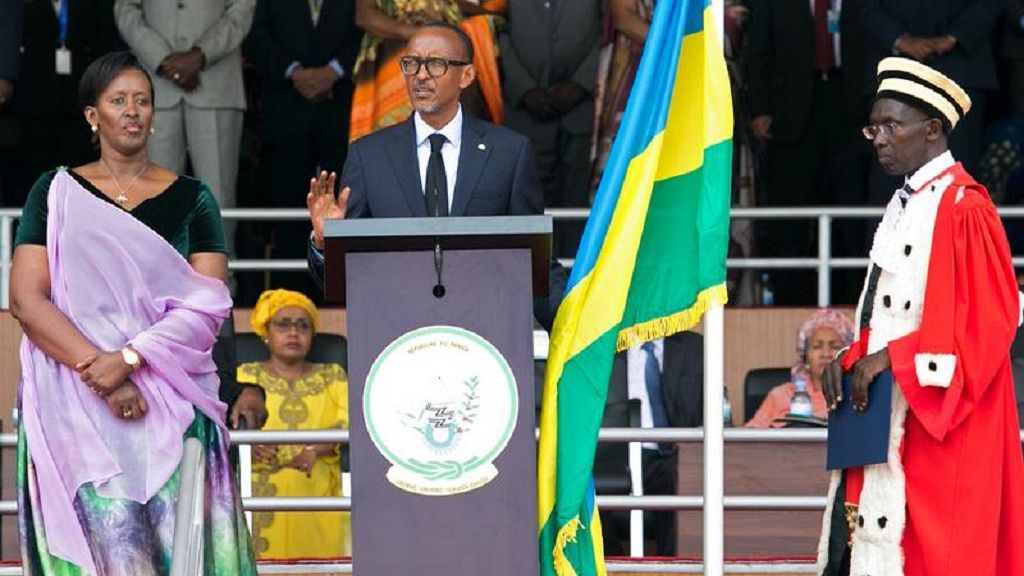
Kenya’s historic, chaotic elections as Kenyatta wins final term
The lead up to Kenya’s August 8 elections was heated with intense opposition calls for reforms. The Independent Electoral and Boundaries Commission (IEBC), however, assured that it was going to be a level playing field and that there was no cause for alarm.
In the end, eight aspirants were passed to contest in the presidential race. The process was a general election which involved the presidential polls. Voting also took place for governors, senators and members of county assemblies.
The main contenders in the presidential race being incumbent Uhuru Kenyatta and former Prime Minister Raila Odinga. Kenyatta with the ruling Jubilee Party whiles Odinga headed the National Super Alliance (NASA) coalition.
The other candidates were: Mohamed Abduba Dida, John Ekuru Longoggy Aukot, Shakhalaga Khwa Jirongo, Japhet Kavinga Kaluyu, Michael Wainaina Mwaura, and Joseph William Nthiga Nyagah.
In the case of Kenya too, voting took place at home and abroad. Save for a few incidents in the strongholds of the main contenders, the process went on smoothly. But it was not before long that NASA raised issues with the process of results transmission by the IEBC.
The IEBC rejected the claims of tampering with the transmission process and proceeded with its announcement of results. They eventually declared Uhuru Kenyatta winner of the vote with 54.27% of votes cast.
Profile: Who is Unhuru Kenyatta?
Results rejection and historic poll annulment
NASA rejected the results which situation led to clashes between their rioting supporters and security forces. A number of deaths were reported as calls increased for the aggrieved party to take the case to court.
Eventually, NASA filed a petition at the Supreme Court seeking the annulment of the results from the August 8 vote. After its hearing, the Justice David Maraga led court invalidated the results and ordered a re-run in 60 days.
The majority of justices said the process had been tainted with irregularities which influenced the final outcome. It was a historic decision on the African continent where all previous presidential poll petitions have failed.
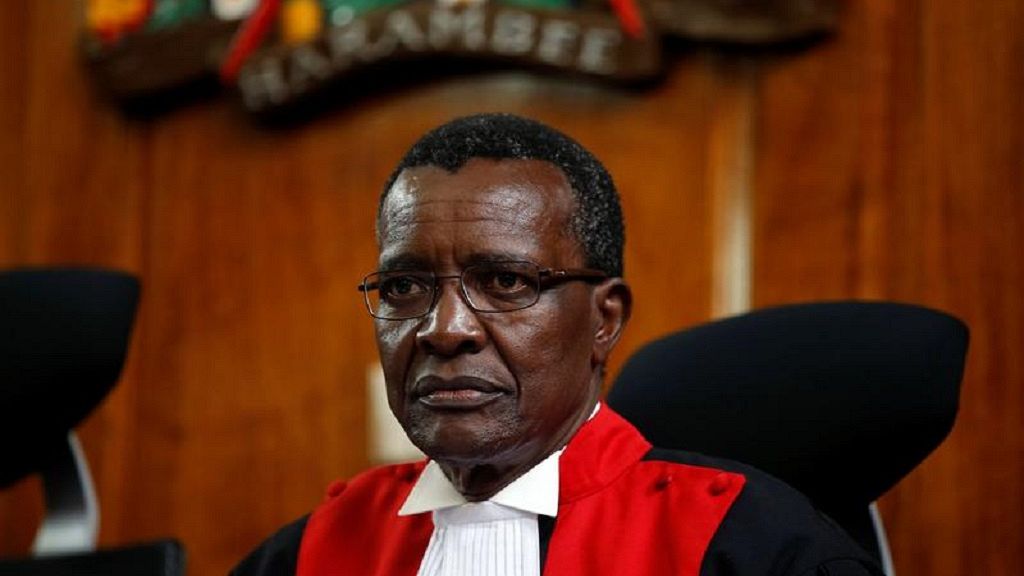
The IEBC slated an initial re-run date which NASA vehemently contested with the reason that the electoral reforms ordered by the court before the re-run had not been carried out. The initial date of October 17 was thus rescheduled to October 26.
In a shock move, Odinga announced that NASA had pulled out of the re-run because the process was not going to be credible. The IEBC went ahead with the polls which were largely chaotic as opposition supporters clashed with police in different places on day of voting.
Voting was even postponed in three counties. The voter turnout was low for obvious reasons – the boycott and issues of security. In the end, Kenyatta was declared winner with over 98% of valid votes cast.
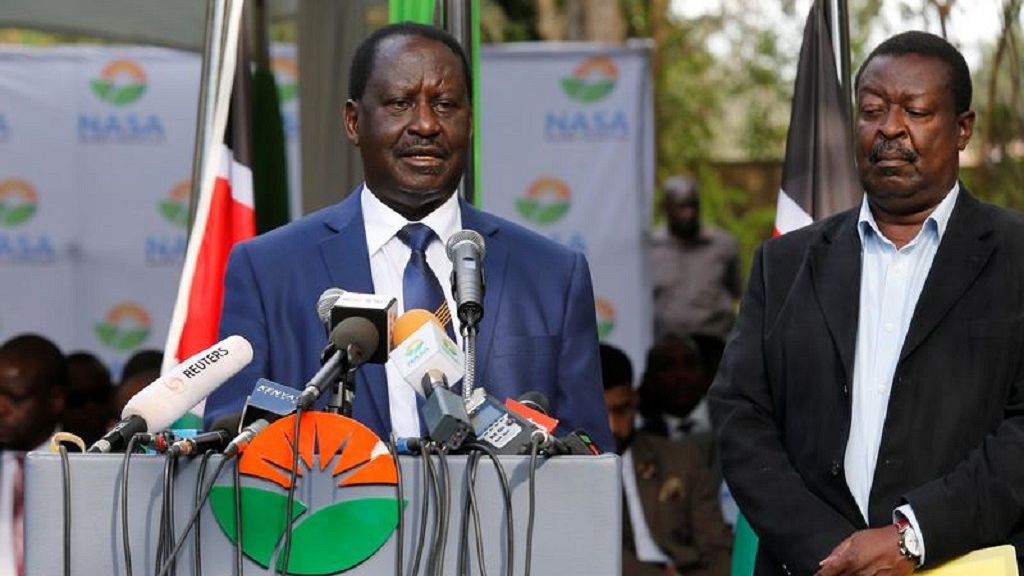
Swearing in amid chaos
He was sworn into office on November 28, 2017; at a packed stadium in the capital Nairobi, in the presence of a number of African heads of state. As the event was ongoing, police were engaged in running battles with anti-government protesters.
NASA announced an alternative swearing-in ceremony for leader Raila Odinga after they announced the formation of a ‘People’s Assembly.’ The December 12 swearing in – declared a treasonable act by the government – has since been postponed after internal and external consultations, a NASA statement read.
In part two of this review, we look at the Angolan, Somaliland and Liberian elections, all of which were set to produce fresh presidential material.
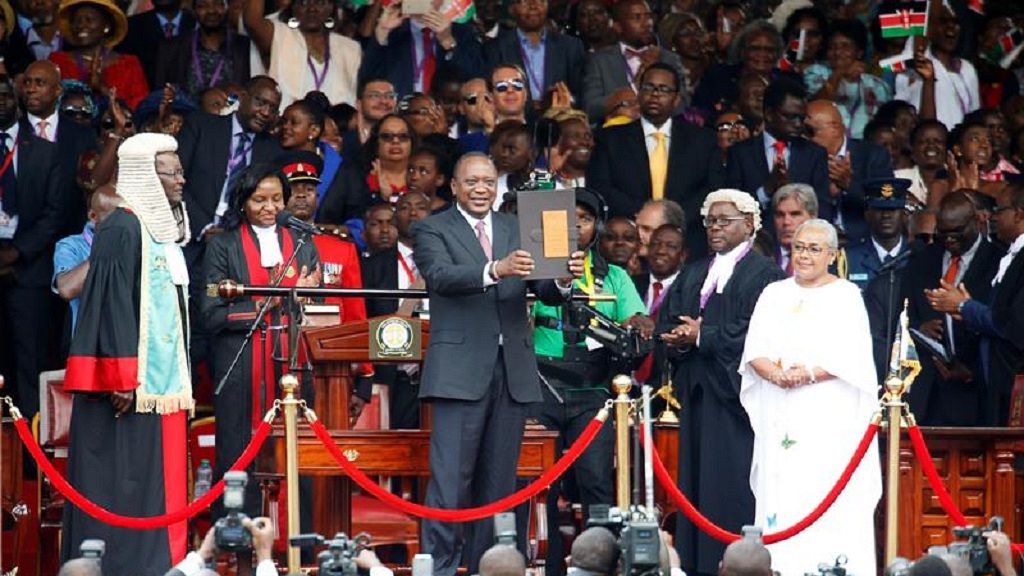



![2017 Review: African presidential polls [1] Somalia, Kenya and Rwanda](https://static.euronews.com/articles/414661/400x225_414661.jpg)

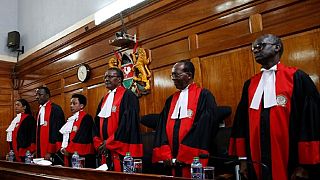
![[LIVE] Rwanda's Paul Kagame takes oath of office for third term](https://static.euronews.com/articles/383683/320x180_383683.jpg)
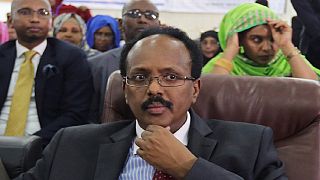
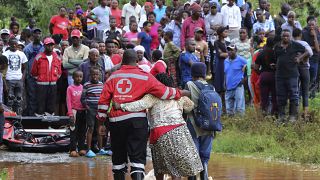
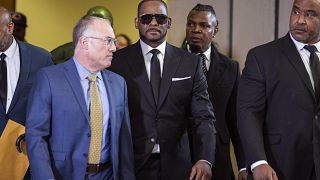
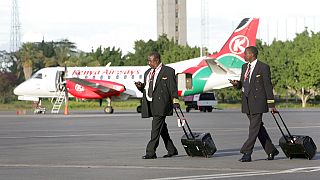
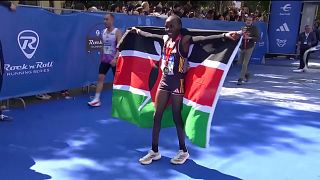
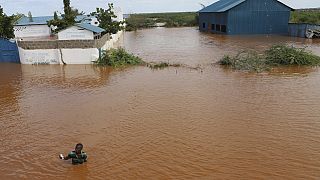
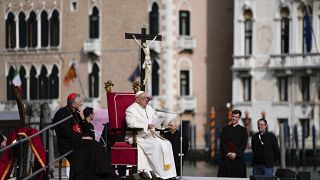
01:29
Kenya: Several people feared dead after boat capsizes in flood-hit east
01:09
Ethiopia, Kenya dominate Madrid marathon
01:20
British prime minister says Rwanda migration policy already working as a deterrent
02:15
Plastic pollution: High expectations in Kenya as global treaty talks underway in Canada
00:50
Kenya: 44 people die due to flooding
01:02
Pics of the day: April 25, 2024